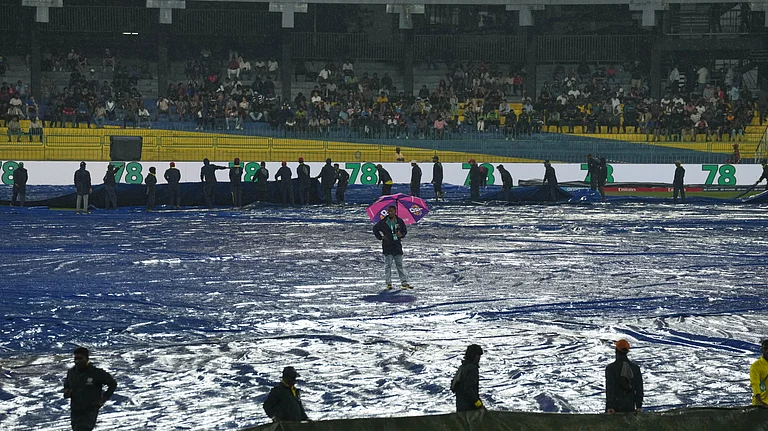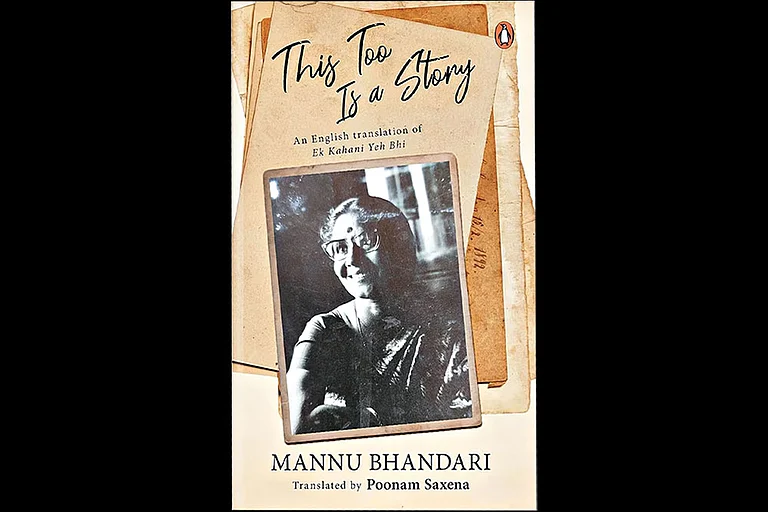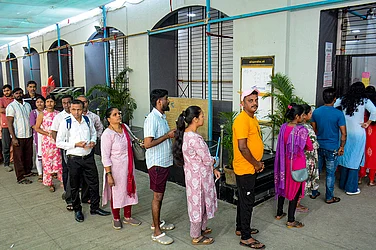The seductive thing about History is that its over. The records and evidence exist, but theyre mute. And therefore up for grabs. When the state set up the Indian Council of Historical Research (ICHR) in 1972, it became a patron of historical research. And History became hostage to the whims of the government of the day. Todays students will be penalised for not getting the Muslim invasions right. Yesterdays students were penalised if they hadnt read their R.S. Sharma (the doyen of Marxist historiography).
ICHRs controversial decision to "temporarily withhold" two volumes of the Towards Freedom series edited by professors K.N. Panikkar and Sumit Sarkar is yet another chapter in the long struggle between History and Itihaas.
"Down with intellectual fascism!" shouted Left-leaning organisations on the crowded lawns of the ICHR with riot police looking on. A few miles away in Jhandewalan at the RSS headquarters, editor Seshadri Chari put the finishing touches to an editorial in the Organiser. "For the Left, recording facts is no longer considered to be History."
Panikkar says the volumes have been withheld because the RSS wants a prominent place in the freedom movement. It wants to emphasise that like Congress politicians even Sangh leaders like Vajpayee and organisations like the Hindu Mahasabha played an important role. "They want to project themselves as patriots of the freedom movement."
The fact that a set of prestigious high-profile volumes that commemorate 10 crucial years from 1937-1947 mentions the Hindu movement only in passing or clubs it together with the Muslim separatist movement is galling. Particularly, when the parivar leads the government and wants to challenge the Congress monopoly on 1947.
Sarkar says all evidence points to the fact that the RSS had no role in the freedom movement. RSS and Mahasabha kept away from peak moments of the national movement because of their belief that the Muslims were their real enemy, not the colonialists. But RSS sources strongly dispute this. Chari says Dr Hedgewar was a follower of Tilak, a nationalist, and also a member of a revolutionary Anushilan Samiti in Bengal. The RSS says several leaders were involved in the freedom movement in their individual capacities. Hedgewars close associate, Appaji Joshi, was a Congress leader in Nagpur and the family of the present Sarsanghchalak, Prof Rajendra Singh, were Arya Samajis who were deeply involved.
After the protests against Water and Valentines Day, the battle between Left liberal historians and historians sympathetic to the Sangh parivar is no longer an inhouse academic debate. Its another skirmish between the Westernised and the indigenous. "Forces loyal to the parivar are creating an Us and Them division," says Panikkar. "Theyre trying to project a history in which historical evidence is replaced by religious faith. Being in power, theyre easily weaning historians to their side." Both Panikkar and Sarkar are respected and established historians whove made no secret of their dislike of "Hindu communalism". "The reason they have withheld our books is simply because they dont like our names," says Sarkar.
Sarkar, described as one of Indias best historians, uses Marxian tools of analysis, but has been a vocal critic of the Tiananmen Square massacre. Apart from his books on swadeshi and colonialism, hes written an acclaimed paper called The Katham Amrito of Ramakrishna Paramhansa which when delivered in Calcutta was applauded by an audience of bhikshus. His father, the legendary Sushobhan Chandra Sarkar, was a historian in the tradition of what is known as the Bengali Enlightenment and cannot be described as Marxist.
When the ICHR decided to recall the books from the Oxford University Press, it failed to inform the authors first. Nor did it communicate to them any such decision on the part of the ICHRs governing council. Instead, the council issued an abusive press release saying they had reason to withhold the books because Basudev Chatterjee and Partha Sarathy Guptas published volumes "had reduced Mahatma Gandhi to a footnote while the Communist Party which played a traitorous role in the freedom struggle has been highlighted out of proportion". It also said that "desperate efforts were made to hide the traitorous role played by the Left...by unscrupulously cutting out from the documents passages that are uncomfortable to the Leftists."
Partha Sarathy Gupta, who died last year, was a litterateur, a liberal, and a scholar respected widely in India and overseas. "To imply that he cut out documents is nothing short of defaming the dead," says historian Narayani Gupta.
The ICHR chairman, B.R. Grover, however, insists that the decision was not ideological. "Four crore rupees of the taxpayers money and 26 years have been spent on the project," he says. "Yet we discovered the volumes that had been published were full of errors." He insists the volumes are too bulky and have no indexes and contents pages, a charge countered by the editors. "We do not intend to stop the publication process," Grover asserts. "Were all colleagues; we respect each other. This is just a process of protection." He says he cant be called a BJP loyalist because he was founder director of the ICHR from 1974 to 1985.
But why is History so important? Because all ideological parties need a past. The RSS doesnt believe in the politics of the present, the past is the more potent way to demonstrate how the Hindu evolved into an Indian. That is why textbooks have been rewritten. Thats why Nanaji Deshmukhs note on education as far back as 1977 led to the withdrawal of R.S. Sharmas textbooks from schools. And thats why the ICHR itself was packed with pro-Sangh historians recently when its governing council was reconstituted. Ever since HRD minister Murli Manohar Joshi announced that textbooks will be rewritten, the ncert faces pressure to change its books. A few weeks ago interviews for appointments of readers and professors at Delhi University were indefinitely postponed. K.M. Shrimali, former head of history at DU, says the reason might be the desire to appoint sympathisers.
However, a senior historian says the Congress is as guilty as the BJP. "In Indira Gandhis day even Akbar was shown as a 16th century Nehru." History provides future votebanks. As you learn, so you will vote.
Grover says the ICHRs decision was taken during its governing council meet of December 1999. But Pritpal Bhatia, a council member, says no such decision was taken. She accuses the ICHR of doctoring the minutes of the meeting to push its agenda. So theres a babel of conflicting voices on who took the decision to recall the volumes. The HRD ministry denies responsibility. Former diplomat and chairman of the ICHR review committee, A.K. Ray, says he had nothing to do with it either, though Grover insists he does. The ICHR entirely ignored the series editor, Prof S. Gopal.
Sarkar and Panikkar say they cant fathom how a review committee comprising a retired diplomat, an archaeologist who built a case for the Ram mandir at Ayodhya and a historian of the 3rd century BC can judge historians of modern India.
Picture the clash. Panikkar and Sarkar: Metropolitan, highly intellectual and articulate in English. And Grover: decades older, much more comfortable in Hindi than English, much closer to the provincial stereotype. "Intellectually," says Shrimali, "the Sanghs no match for the liberal Left." "We werent taken seriously," says a pro-BJP historian, "because we didnt come from a cosmopolitan tradition."
Yet even in trying to critique Guptas volume, the ICHR was reduced to distorting the words of another Left historian. Sabyasachi Bhattacharyya of jnu said he was "surprised" and "dismayed" to find his review misquoted when, in fact, hed expressed his admiration for the book.
Historys still contentious. Vivekananda became a revivalist, says the Left. He was a nationalist, says the Sangh. Indias is the history of Hindu-Muslim antagonism, says the Sangh. Its a history of the struggles of common people, says the Left.
The only lesson here perhaps is: if future generations are to have an impartial History, the state must disinvest from it.


























